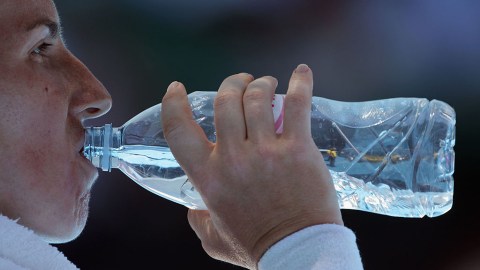Why This Maine Student Rejected Her Bottled Water Scholarship

One Maine student really needed money to attend college in the fall. And at first it seemed that she was lucky to get a scholarship to do just that. Poland Spring Bottling Company, a subsidiary of Nestlé, awarded a $1000 scholarship to Hannah Rousey to contribute toward her college expenses. However, Rousey entered the media sphere when she refused to accept the money from the company for environmental reasons.
If the situation seems odd at first glance, it might make sense with a little more background. Rousey plans to study “sustainable agriculture and environmental protection law.” So she takes issues of the natural world quite seriously. She wasn’t too keen on the idea of being supported in her studies by a company that engages in the environmentally harmful practice of bottling water.
Rousey might have good reason to be concerned. Bottled water consumption is on the rise, growing in popularity by 120% from 2000 to 2015. The CEO of Beverage Marketing predicted that by 2017, we may see more consumers drinking water than soda. Much of the switch to bottled water has been driven by public health concerns over sugar-sweetened beverages.
According to Food and Water Watch, plastic water bottle garbage is a big source of pollution, and half of all bottled water comes from the tap anyway. One could argue that it makes much more sense to be drinking the tap water readily available and unpackaged, instead of bottled water. The organization recommends that those who do not like the taste of their tap water buy a filter, which is more environmentally friendly (and cheaper overall) than purchasing pre-packaged water.
If you think you can tell the difference between tap water and bottled water, you might be surprised at the results of doing a blind taste test, with both samples at the same temperatures. Especially after tap water has been filtered, or left open in the fridge for any chlorine to dissipate, it can be tough to truly tell the difference.
—
Header Image: Mark Dadswell / Staff





